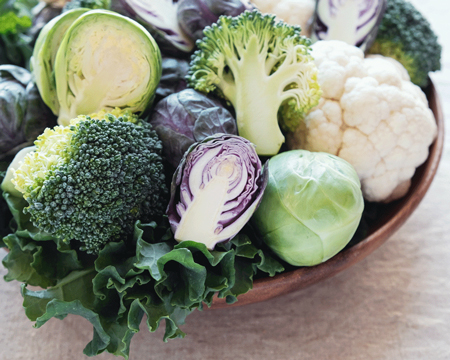Allyl isothiocyanate, a compound present in human diets, found to induce cell toxicity in breast cancer cell lines
In this study, a team of researchers from Taiwan examined the effect of allyl isothiocyanate (AITC), a compound present in many cruciferous vegetables, on human breast cancer cell lines MCF-7 and MDA-MB-231. The results were published in The American Journal of Chinese Medicine.

• Isothiocyanates are compounds that have been shown to exhibit anticancer effects, such as the induction of apoptosis in different human cancer cell lines.
• In this study, the researchers found that AITC stimulated reactive oxygen species and Ca2+ production, as well as reduced the mitochondrial membrane potential.
• It also increased the activity of caspase-8, -9 and -3 in both cell lines; caspases play essential roles in programmed cell death and inflammation.
• In addition, AITC induced mitochondrial-mediated apoptosis.
• There was a significant decrease in the levels of the anti-apoptotic protein Bcl-2 together with a marked elevation in the pro-apoptotic protein Bax in both cell lines.
• AITC induced programmed cell death in human breast cancer MCF-7 cells via AIF and Endo G signaling pathways, but in MDA-MB-231 programmed cell death occurred via the GADD153 pathway.
In sum, the results demonstrated that AITC, a compound that is ordinarily present in human diets, may be used to treat various cancers.
yogaesoteric
September 21, 2019
